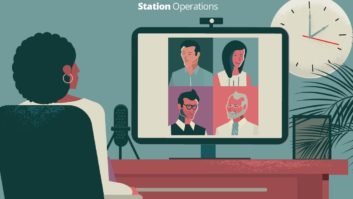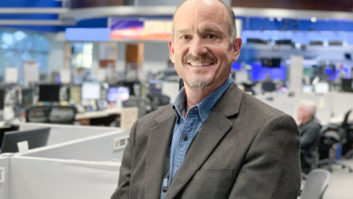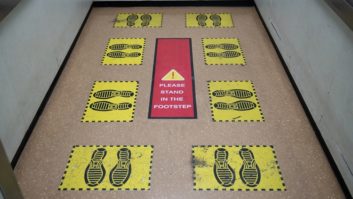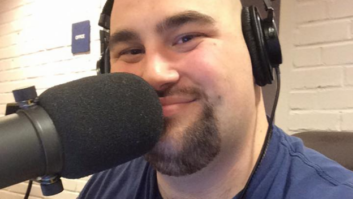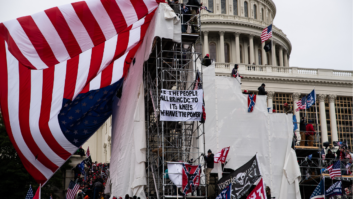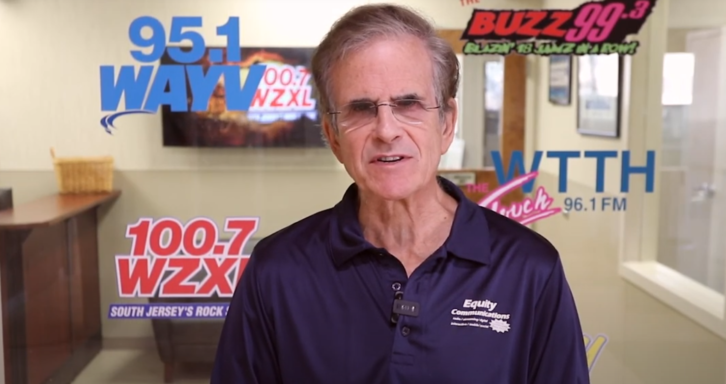
The author is president/partner at Equity Communications, a radio ownership group in southern New Jersey.
It was a brisk chilly April 15 morning on the Black Horse Pike in West Atlantic City.
It should have been the start of another bustling summer season at the Jersey shore; but we had just finished chatting with the mailman, who’d left without delivering any checks for the fifth straight day. (He did leave everyone else’s mail with Equity, since no other businesses in our five-story office building were open.)
This was exactly one month into what would become the depths of the pandemic.
No emails, no voice mails and 50% of Equity’s second quarter bookings had been cancelled in the previous 30 days.
Sales visits and phone calls were out of the question. No salespeople to make them, no clients to accept them. No local businesses planning their start-of-season promotions.
Phillies baseball, usually a $250,000+ revenue contributor for Equity, had been postponed indefinitely. The WZXL Beer Fest and Music Festival, a $100,000 event marketing revenue generator, was cancelled.
It was nuclear winter in April.
Biblical
My partner Steve Gormley and I formed Equity Communications in 1996 to hold nine radio stations and, more recently, a digital advertising and streaming business.
We’d been through 9/11, the 2006 financial crisis, Hurricane Sandy, the collapse of the local casino industry and the digital disruption of traditional media. But the pandemic and the plunge it created in revenues were like nothing we had ever seen. We’d spent 24 years building this company; almost half of it disappeared overnight. Earlier disruptions were rounding errors by comparison.
In March everything suddenly stopped. No cars on the road to listen to radio. No car dealers or casinos open to buy ads. No one at work to write checks for the ads we had already run.
The standstill was downright biblical. And Equity of course was not alone in that.
We had to take stock of everything we’d been doing for 24 years and put it through a COVID lens. Our company was forced to cut expenses, downsize staff, reduce salaries, reduce employee benefits, sell off assets and re-engineer its sales, programming and administrative departments.
Veteran AEs and DJs left, new digital salespeople emerged, hard personnel decisions had to be made. Legacy operations strategies and practices with diminishing effect were scrapped, new ones instituted. We listened harder to our clients and audiences to set our direction.
We were forced to get slimmer and faster. For Equity it was a complete reset.
Compressed changes
In a weird way we’d been prepared for this new economic reality. Our company had been growing its streaming audiences via websites and mobile apps, and had increased revenues five-fold by staffing up our highly successful in-house digital sales division.
The pandemic accelerated forces that had already been in play in advertising, delivering years of change in just a few short months.
From a sales point of view, everyone was thrust out of their comfort zones. From an expense control viewpoint, we stopped doing stupid, silly and fun stuff. From an operations point of view things, we looked at practices we’d deemed mission-critical and said, “Why in the world are we doing this?” From a content point of view, streaming music and digital programming, once thought of as an existential threat to over-the-air radio media, became our saviors.
We felt we had reinvent the company or we might not have one left. It was an opportunity to fast-forward modernization.
We took the approach that the pandemic didn’t happen to us, it may have happened for us. The worst crisis we had ever seen presented innumerable opportunities. We became the epitome of a modern media company.
We were at a bit of a disadvantage compared to local competitors like Comcast, Townsquare and the Atlantic City Press; we did not have the backing or liquidity of a larger corporation. On the other hand we had no debt or debt service to worry about.
We were also fortunate that Equity had an amazing core of a dozen or so employees who have showed up every day to keep the doors open. Staggered hours, skeleton staffing, physical distancing, separation, sanitation, ventilation, mitigation, lots of cleaning and masking kept us going.
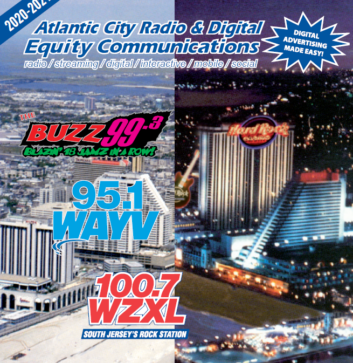
These staff members, most of whom have been with us for well over 15 years, are the real architects of our reset — our essential workers.
Along the way Equity learned valuable lessons about dealing with adversity and with COVID. As cases start spiking again, our pivot may offer useful lessons to local businesses that have made it this far but may struggle to get through a tough winter.
Coming back
We’ve been telling our clients: We’re still here, we’re still big and popular, and now we’re more affordable than ever. Staying big, digital, friendly, local and cheap is our way through this.
We’re getting to the other side and are now seeing sequential improvement month after month. Our third quarter revenues improved by 66% over our second quarter, mirroring the recovery seen in other media companies. Actual forward pacing has returned for the fourth quarter as I write.
I’m encouraged that many banks, law firms, health care providers, car dealers, restaurants and casinos are calling staffs back to work. That should be a precursor to advertising and spending eventually coming back.
I’m sure most of the clients we’re Zooming with are still in their sweat pants and underwear; but it seems like more and more staffs are drifting back to work each week.
We don’t know what the coming quarters hold but we’re doing OK and our doors are open. We’re still here and we’ll be here.
I’m worried about projections that say one out of five small businesses will close this winter. But I hope after all our “eLectile dysfunction” calms down, there will be another round of stimulus for our clients. The real recovery will begin later in 2021 when everyone feels safe and people can eat in restaurants, hang out in bars and shop in stores without a concern.
When the exciting new vaccines and therapeutics are served up, combined with a side order of herd immunity, I think our local radio and digital will really take off. And with our new lean-mean-machine expense structure we should see actual profit and cash flow again.
We’re not bulletproof; but I feel we’ve toughened ourselves against second and third waves and associated shutdowns. Likewise I feel we’ll be ready to pounce on any real recovery the minute it starts. We’re like that Timex watch from those John Cameron Swayze TV commercials from 50 years ago. We took a licking but we’re still ticking.
Comment on this or any article. Email [email protected].






